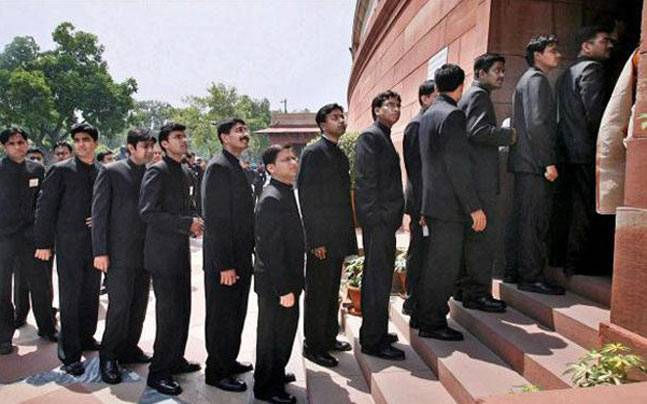UPSC Geo Scientist Syllabus 2024
- SarkariResult

- Sep 22, 2023
- 3 min read
The UPSC (Union Public Service Commission) Geo Scientist examination is a prestigious competitive exam conducted by the UPSC in India to recruit candidates for various posts related to geological services in the government. The exam is officially known as the Combined Geo-Scientist Examination, and it is held annually.

UPSC Geo Scientist Syllabus 2024Here are some key points about the UPSC Geo Scientist examination:
1. **Examination Structure:**
The examination is conducted in three stages:
- Stage 1: Preliminary Examination (Objective Type)
- Stage 2: Main Examination (Conventional Type)
- Stage 3: Personality Test/Interview
2. **Eligibility:**
Candidates must meet certain eligibility criteria in terms of age, educational qualification, and nationality. Generally, candidates should have a Master's degree in relevant disciplines to be eligible.
3. **Subjects:**
The examination covers various subjects related to geological sciences, including Geology, Geophysics, Chemistry, and Hydrogeology.
4. **Syllabus:**
The syllabus includes topics related to geomorphology, mineralogy, petrology, structural geology, hydrogeology, environmental geology, oceanography, etc., based on the chosen subject.
5. **Selection Process:**
Candidates must qualify in each stage of the examination to move on to the next stage. The final selection is based on the candidate's performance in the Main Examination and the Personality Test/Interview.
6. **Preparation:**
Aspirants should thoroughly study the syllabus, practice previous years' question papers, take mock tests, and enroll in coaching classes or utilize study materials to prepare effectively.
7. **Career Opportunities:**
Successful candidates can be appointed as Geologists, Geophysicists, Chemists, and Hydrogeologists in various government departments and organizations.
8. **Notification and Exam Dates:**
The UPSC releases a notification for the exam annually, specifying important dates such as the application period, exam date, and other relevant information.
It's essential for aspirants to keep themselves updated with the latest information regarding the examination through official UPSC notifications and relevant resources.
UPSC Geo Scientist Syllabus 2024
The syllabus for the UPSC Geo Scientist examination is divided into four categories based on the posts offered: Geologist, Geophysicist, Chemist, and Junior Hydrogeologist. Below is an overview of the syllabus for each category:
### Geologist
**Paper-I: Geology**
1. General Geology
- The Solar System, meteorites, origin and interior of the earth, and age of the earth.
- Geological time scale.
- Earth's crust and its composition, elements of minerals and their classification, silicates, and oxides.
- Igneous rocks, sedimentary rocks, and metamorphic rocks.
- Geological structures and their interpretation.
2. Paleontology
- Species and their classification.
- Principles of paleontology, the evolutionary history of fauna and flora during geological periods in Indian stratigraphy.
3. Stratigraphy
- Principles of stratigraphy.
- Indian stratigraphy.
**Paper-II: Geology**
1. Mineralogy and Geochemistry
- Classification of minerals.
- Optical properties of minerals.
- Chemical composition of minerals.
- Geochemical laws and geochemical exploration.
2. Igneous and Metamorphic Petrology
- Classification, origin, mineralogy, and texture of igneous rocks.
- Classification and characteristics of metamorphic rocks.
3. Sedimentology
- Origin, transportation, and deposition of sediments.
- Sedimentary facies, basin analysis, and sedimentary environments.
4. Indian Mineral Deposits and Mineral Economics
- Occurrence, origin, and distribution of metal and non-metal deposits in India.
- Mineral industry and their conservation.
### Geophysicist
**Paper-I: Geophysics**
1. Part A: Solid Earth Geophysics
- Earth's gravitational field and methods of determining its shape.
- Heat flow in the interior of the earth.
- Geomagnetism and paleomagnetism.
2. Part B: Seismology
- Elastic properties and their measurements.
- Seismic waves and rays.
**Paper-II: Geophysics**
1. Part A: Electrical and Electromagnetic Methods
- Electrical and electromagnetic properties of rocks and minerals.
- Electrical and electromagnetic prospecting methods.
2. Part B: Geophysical Inversion
- Linear inversion of data.
- Non-linear inversion of geophysical data.
### Chemist
**Paper-I: Chemistry**
1. Physical Chemistry
- Quantum theory and applications to atomic and molecular structure.
- Theory of gases.
- Chemical thermodynamics.
- Electrochemistry.
- Chemical kinetics.
2. Inorganic Chemistry
- Atomic structure and periodic table.
- Coordination compounds.
- Main group elements and their compounds.
- Transition metals and coordination chemistry.
- Metallurgical thermodynamics.
**Paper-II: Chemistry**
1. Analytical Techniques
- Spectroscopy.
- Chromatography.
- Electro-analytical techniques.
2. Organic Chemistry
- Stereochemistry.
- Reaction mechanisms in various types of organic compounds.
- Pericyclic reactions.
### Junior Hydrogeologist
**Paper-I: Geology**
1. General Geology
- The Solar System, meteorites, origin and interior of the earth, and age of the earth.
- Geological time scale.
- Earth's crust and its composition, elements of minerals and their classification, silicates, and oxides.
- Igneous rocks, sedimentary rocks, and metamorphic rocks.
- Geological structures and their interpretation.
2. Ground Water Hydrology
- Occurrence of water.
- Movement of subsurface water.
- Well hydraulics and well design.
**Paper-II: Hydrogeology**
1. Hydrogeology
- Groundwater exploration and prospection.
- Groundwater quality, management, and legislation.
This is a brief overview of the syllabus for the UPSC Geo Scientist examination. Candidates should refer to the official UPSC notification and detailed syllabus for a comprehensive understanding of the topics and sub-topics to be covered.



Comments